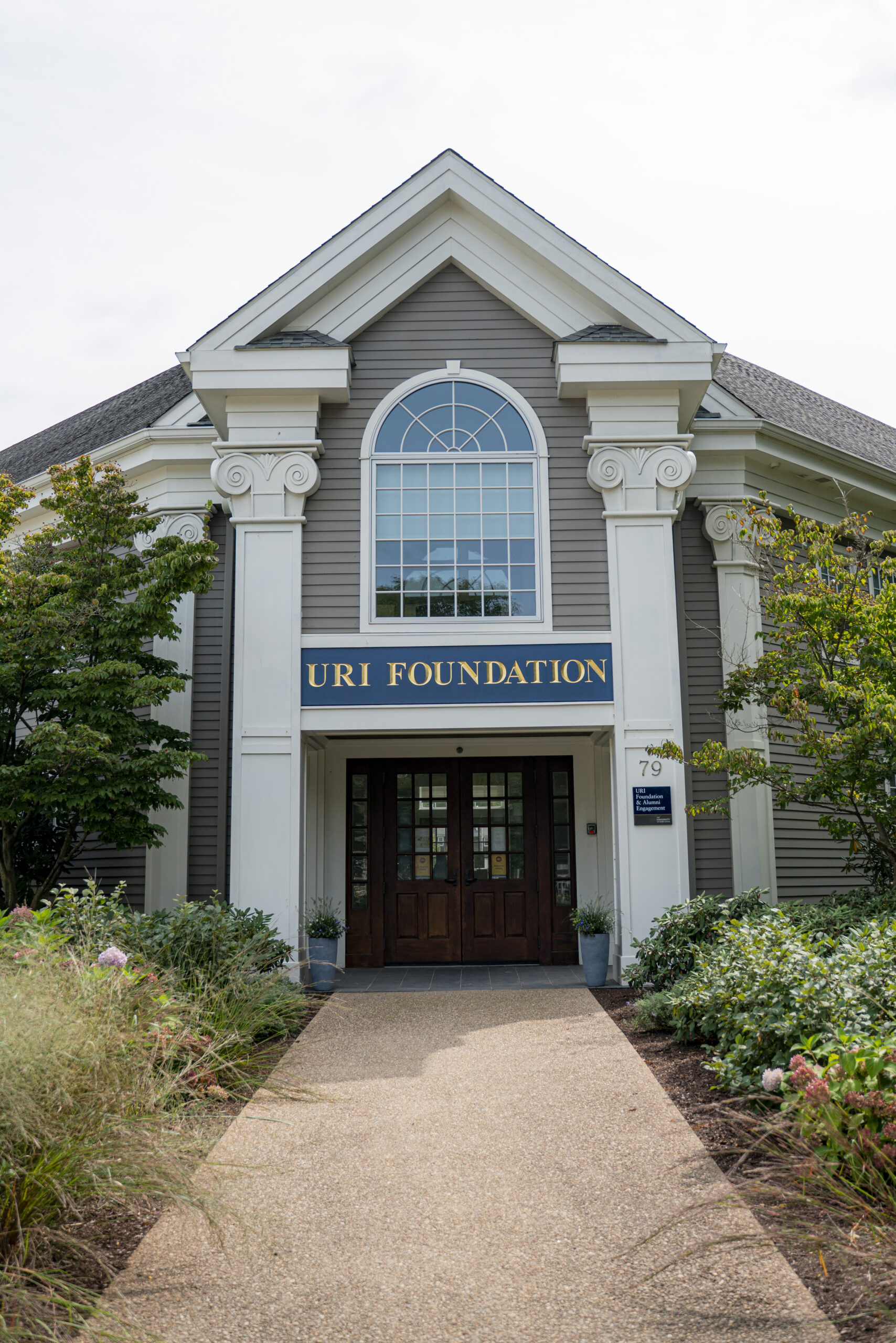University announces campaign to raise $250 million by 2024.
The URI foundation is raising money to improve student life on campus. Photo By Ethan Pellegrino.
The University of Rhode Island Foundation recently announced a major campaign to raise $250 million by 2024 to further develop student life, campus programs and faculty research.
The campaign, “Big Ideas. Bold Plans.,” has already raised $177 million thus far in their fundraising efforts. This money has come largely from gifts from leadership donors, such as Tom and Cathy Ryan donating $35 million in 2019.
The campaign is made up of five pillars: student access, the URI learning experience, transformative faculty leadership, innovative and distinctive programs and strategic opportunities.
Student access will allow the University to give incoming students more scholarships, grants and financial aid when applying to URI. The URI learning experiences includes more opportunities for facility renovations, as well as the growth of academic and co-curricular activities. These funds will also allow URI to remain at the forefront of education by investing in faculty research.
Throughout the campaign, the University will also seek to grow its current programs while creating new ones and increase its technological abilities and offerings. They hope to grow investment in artificial intelligence, athletics, the University’s annual fund and advance its relationships with external organizations.
According to Lil O’Rourke, president of the URI Foundation, deciding these pillars of importance was an internal project throughout University leadership.
“[The pillars are] all ground-up, top-down,” O’Rourke said. “The deans were asked for their goals. The provost and the president looked at broader, higher-level goals and you sort of meet in the middle. You try to describe our five pillars to compel people to being inspired by the needs of the University, and demonstrate how the place will change when we raise that amount of money.”
One major URI initiative is the RhodyNow scholarship, designed to help students that may be facing financial struggle remain at the University. According to O’Rourke, last year the University received a $2 million immediate donation to RhodyNow, and the Foundation will look to raise another $1 million for the program before the year ends.
While O’Rourke recognizes that current students won’t feel every direct effect of this campaign due to its 2024 timeline, she believes students on campus should still be excited about the initiative.
“I think it energizes the campus to have the common goal,” O’Rourke said. “[Students] will feel direct impact in some ways. They might be receiving a RhodyNow scholarship. They might be studying in the Fascitelli Center. They might be playing a sports game on the turf field. Those are direct impacts of this campaign on the lives of students. [This] campaign strengthens the University for the future, so as alumni they’ll continue to see that their University is a strong, great place that they can be proud of.”
According to O’Rourke, this campaign has been in the works for many years, although she did not specify how long this was. The Foundation’s protocol is to quietly fundraise until the campaign reaches a certain monetary threshold, a practice called the leadership stage. This time it was $138 million, but the Foundation had far exceeded that goal, going public with the campaign at approximately $175 million.
The Foundation hires a consultant firm to assess the capabilities of URI and then works with the school’s donors to decide on a monetary goal.
“Our most recent campaign, our goal was $100 million,” O’Rourke said. “They exceeded their goal. So this is two-and-a-half times [that]. So this is very ambitious.”
Katherine Blake, a junior, is excited about the campaign, and what it could do for the future of the University.
“I think URI does a good job of giving us the opportunities to be the best at our major that we can be,” Blake said. “It sounds like these extra funds will go towards more opportunities for students in the different majors. I know that [the donations] might not directly affect our class, but it’s good for the future to say that you went to a well-rounded school.”





